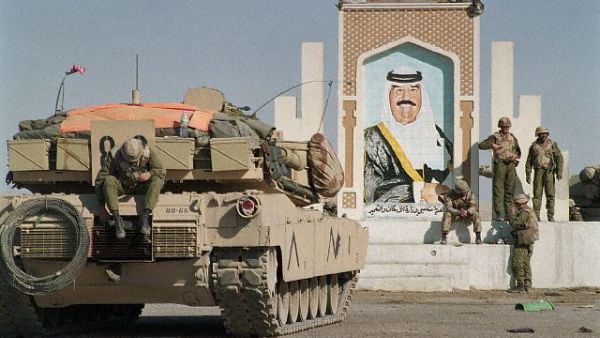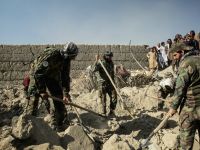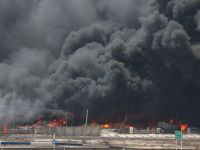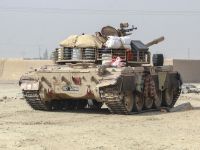Kuwait is due to receive approximately $744 million in a few days from the United Nations Compensation Commission (UNCC) for disbursement in environmental rehabilitation-after signing the political assurances accord with the UN. Khaled Bou- Hamra, the secretary-general of the Kuwaiti liaison commission for environmental rehabilitation, said that the Kuwaiti compensation claims, according to UN resolution 258, cover six restoration ventures.
One of the claims is related to underground water treatment at Al-Rawdatain and Umm Al-Aish. The water was contaminated when Iraqi forces, during the 1990-1991 occupation of the country, set a chain of oil wells alight, and when chemical substances were used to extinguish the burning wells. This demand is vital, for the reservoirs in these two regions is Kuwait’s sole potable water source, thus the projects to rehabilitate the water is among the committee’s priorities. Work at these sites is already underway, starting with determining contamination levels in the underground strata, he said, adding that the next phase would be selecting the technique for treating the pollution.
Explaining, he said the teams assigned to operate at these sites began the work in December 2012 and had already specified locations for scooping up samples, indicating that the next stage of examining the samples would last for three years and that the treatment would take much longer time reaching 15 years. Moreover, he indicated that this particular process might drag on for up to 20 years. A second claim, Bou-Hamra said, addresses clearing pollution remnants on the Kuwaiti coast, particularly Al- Sulaibikhat beach, where the occupation forces had dug 115 trenches, filled them with fuel before setting them afire. The occupation forces, he added, had dug a 4.7- km-long trench stretching from North Kuwait to Al- Sulaibikhat and filled it with oil. Due to such acts that contaminated the Kuwaiti environment, the government had forwarded the demand to clear up Al- Sulaibikhat bay and establishing a marine reserve, which would be closed off for 30 years to allow life restoration.
Work at the polluted trench in Al-Sulaibikhat has already started, but workers are facing obstacles such as mines planted adjacent to the craters, he explained. As to Kuwait’s third claim, it calls for tackling oil lakes, formed when the occupiers set on fire some 700 crude wells. The claim stipulates clearing up residues of the pollution and beautifying with plants the locations and nearby areas. He added that two thirds of the UN commission fund allotted for renovating the Kuwaiti environment, estimated at $2.9 billion, would be invested in the oil sector to tackle the oil lakes, soot blanketing sand dunes and soil reclamation, necessary for plants’ regrowth. Rest of the allotted fund would be given to the ministries of electricity, water and the agricultural department for public locations’ beautification and establishing five reserves. Bou-Hamra indicated at some difficulties in the strategic process of restoring the Kuwaiti environment, namely lack of devices that can treat the soil on wide scale. In this respect, Kuwait Oil Company started qualifying companies, with potentials of employing such techniques.







